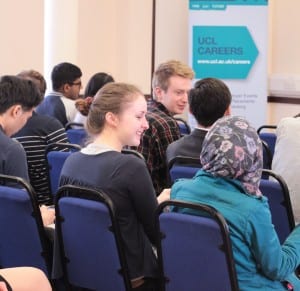Many organisations across a number of different sectors now use aptitude tests to assess the skills of applicants as part of the recruitment process. Frequently used in entry level positions, these tests are designed to evaluate applicant capabilities in numerical, problem solving, critical thinking, behavioural and communication tasks so that they can recruit the highest calibre candidates. All of the tests are completed under exam conditions and in some businesses, particularly those which are extremely competitive, the pass mark is high. If you are to succeed in the recruitment process, preparatory work is absolutely essential for any type of aptitude test.
Preparation is Key
As with any other assessments, there are no shortcuts to passing aptitude tests. Success requires time, patience and practice. The first step in the preparation process is to research the type of test that you will be asked to complete. This is usually provided in your confirmation letter or email sent by the recruiter. There are many different types of aptitude tests including verbal reasoning, numerical reasoning and logical reasoning. Each of these tests will include slightly different questions so you must ensure that you prepare for the right test or tests.
Test Questions
Once you have an idea about the type of test that you will be asked to complete, there are a number of resources online to help you practice for your aptitude test. It is strongly recommended that you make use of these practice websites to sit as many tests as you can work through. As you progress you will notice that you will improve your speed and accuracy so you can approach the actual aptitude tests with more confidence.
Instructions
With all assessments you will be provided with a set of instructions. It is really important that you read these thoroughly before you begin as there have been some instances of candidates misunderstanding the instructions and approaching the test incorrectly. Overlooking important details in the instruction information at the beginning can have a detrimental impact on your score, so always read them carefully.
Pace
One of the great things about carrying out practice aptitude tests is that it gives you the opportunity to perfect your technique. Aptitude tests are very fast paced, with approximately 30 seconds allocated to each question so the more practice and preparation you carry out, the faster you can progress through each question. One of the main challenges within any of the aptitude tests is to evaluate how well candidates can think when working under pressure. However, it is really important to read the question properly and provide a prompt answer. Don’t spend too long thinking over a question; if it is too difficult move on and then you can always return to it at the end.
Trick Questions or Answers
Aptitude tests are designed to make you think. By familiarising yourself with the questions you will be able to identify whether the question is designed to confuse you or are designed specifically to make you think. The majority of test questions are quite straightforward but there will be some sprinkled throughout the test which require a little more thought.
Top Tips for Aptitude Tests
We have put together a list of top tips that can help you prepare for aptitude tests and increase your chances of securing an interview or progressing to the next stage in the recruitment process;
#1 Practice, Practice, Practice
Aptitude tests are often completed through an online assessment system, so practice these as much as you can online to familiarise yourself with the way in which they are structured.
#2 Materials
If permitted, take with you the necessary tools for your test. This could include blank sheets of paper, pens, a watch and a calculator
#3 Time
One of the main problems associated with aptitude tests is getting the timing right; candidates need to learn how to work quickly and accurately to progress through the test.
#4 Location
When you practice the aptitude tests ensure that you are in a suitable environment and free from distractions.
#5 Practice Tests
On the day of your actual aptitude test the assessor may issue you with a set of optional practice questions. Never pass this opportunity by as it is a great way for you to familiarise yourself with the style of the test before you begin.
#6 Guidance
Always read through any accompanying notes or guidance that you are provided with in the test. These could offer vital pieces of information to complete the test correctly.
#7 If in doubt move on
Don’t spend too long answering a single question. Aptitude tests are designed to be fast paced so you don’t have time to spend more than 30 seconds on each question. If you find a question difficult, move on to the next one and then return to it at the end if you have time.
#8 Make Notes
Depending on the type of aptitude test it is always advised that you have a piece of A4 paper to hand so that you can make quick notes or write down calculations rather than trying to work it out using the corner of your assessment paper or on screen.
#9 Calculator
It may seem trivial but use a good calculator that you are familiar with so you can work out your answers quickly.
#10 Feedback
After the aptitude test always ask for feedback particularly if you didn’t make it to the interview stage. Ask the assessor if you can have a copy of your paper and answers to see where you went wrong and the areas which require improvement. Feedback is a great way to see where you can improve.
Guest blog post contributed by Edward Mellett, WikiJob
 Close
Close




